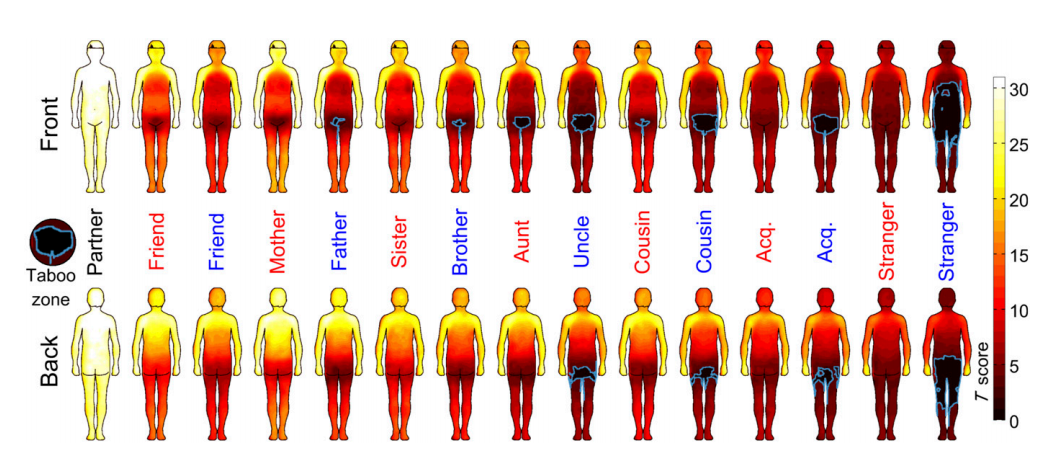

Riding crowded public transportation, or navigating large crowds at an event or concert often means getting touched by strangers. Researchers at the University of Oxford and Aalto University in Finland have turned to 1,368 people from five countries to determine how comfortable people are with being touched on various body regions based on who’s doing the touching.
The researchers used an “Internet-based topographical self-reporting tool.” That basically means the study participants were asked to color in the parts of the body they would allow people (ranging from partners to strangers) to touch, and why. The data was then compiled to map the areas that are not allowed (the taboo zones) and the areas that are more acceptable to touching on the front and back of the human body. These are called touch-area maps.
In general, the data shows what you might expect. The closer the relationship with someone, the larger the touchable body area.
“The results indicate that touching is an important means of maintaining social relationships,” Aalto University researcher Juulia Suvilehto said in a release. “The touch space map is closely associated with the pleasure caused by touching. The greater the pleasure caused by touching a specific area of the body, the more selectively we allow others to touch it.”
In terms of cultural breakdown, the researchers say cultural influences had a minor effect on the results. In the study, they mention a few standouts. For example, British people were less comfortable with being touched compared to the other respondents from Finland, France, Italy, and Russia. And speaking of Russia, those respondents tended to touch more conservatively than respondents from other countries.
This research shows that human touch is closely related to the emotional bonds people form with others. The study was published this week in the Proceedings of the National Academy of Sciences.
